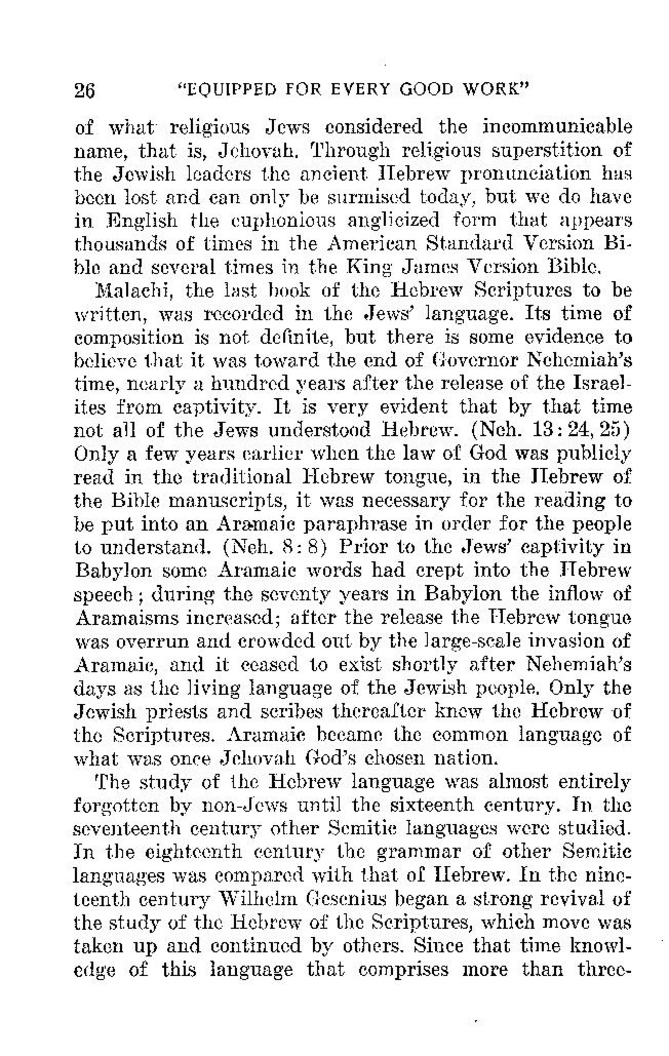{{raw:data:p|nq| of what religious Jews considered the incommunicable name, that is, Jehovah . Through religious superstition of the Jewish leaders the ancient Hebrew pronunciation has been lost and can only be surmised today, but we do have in English the euphonious anglicized form that appears thousands of times in the American Standard Version Bible and several times in the King James Version Bible . Malachi, the last book of the Hebrew Scriptures to be written, was recorded in the Jews' language . Its time of composition is not definite, but there is some evidence to believe that it was toward the end of Governor Nehemiah's time, nearly a hundred years after the release of the Israelites from captivity. It is very evident that by that time not all of the Jews understood Hebrew. (Neh . 13 : 24, 25) Only a few years earlier when the law of God was publicly read in the traditional Hebrew tongue, in the Hebrew of the Bible manuscripts, it was necessary for the reading to be put into an Aramaic paraphrase in order for the people to understand . (Neh . 8 : 8) Prior to the Jews' captivity in Babylon some Aramaic words had crept into the Hebrew speech ; during the seventy years in Babylon the inflow of Aramaisms increased ; after the release the Hebrew tongue was overrun and crowded out by the large-scale invasion of Aramaic, and it ceased to exist shortly after Nehemiah's days as the living language of the Jewish people . Only the Jewish priests and scribes thereafter knew the Hebrew of the Scriptures . Aramaic became the common language of what was once Jehovah God's chosen nation . The study of the Hebrew language was almost entirely forgotten by non-Jews until the sixteenth century . In the seventeenth century other Semitic languages were studied. In the eighteenth century the grammar of other Semitic languages was compared with that of Hebrew . In the nineteenth century Wilhelm Gesenius began a strong revival of the study of the Hebrew of the Scriptures, which move was taken up and continued by others . Since that time knowledge of this language that comprises more than three-
